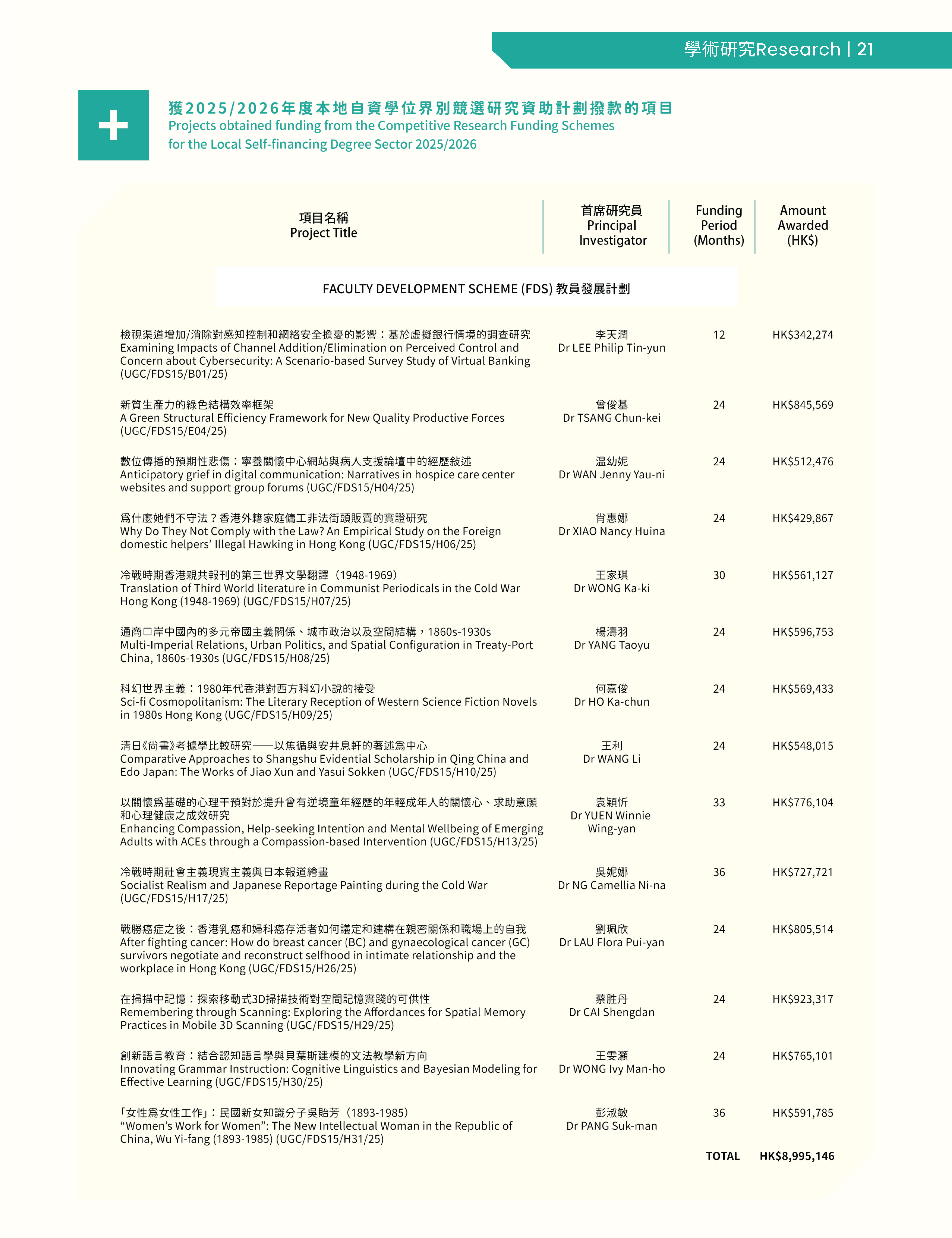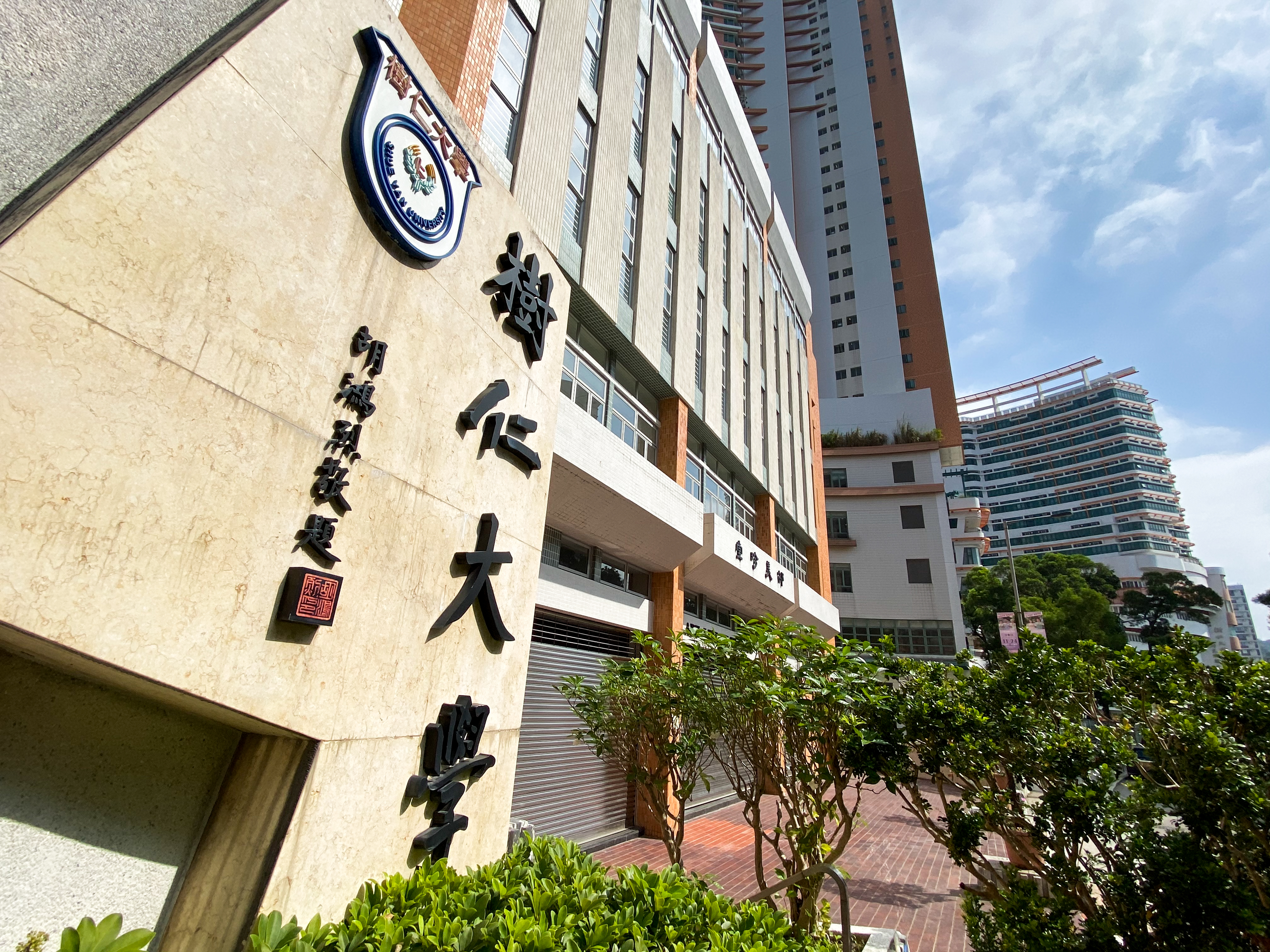Hong Kong Shue Yan University (HKSYU) has once again achieved outstanding success in the 2025/26 Competitive Research Funding Scheme for the Local Self-Financing Degree Sector, administered by the Research Grants Council (RGC). The university secured funding for 14 Faculty Development Scheme (FDS) research projects, with a total award of nearly HK$9 million, both record highs in a single round since the scheme’s inception.
The grant amount for the 14 supported projects ranging from HK$340,000 to HK$920,000 and durations of 12 months to three years. The success rate stood at 33.33%. Of these, 12 projects belong to the “Humanities and Social Sciences”, aligning with HKSYU’s mission to promote Digital Humanities and reshape liberal arts education for the digital age. The remaining two projects, in the fields of “Business Studies” and “Engineering”, highlight the university’s diverse development and innovative endeavours.
Dr Alex LI Wang-on, HKSYU Associate Academic Vice President (University Research), said this year’s results continue the University’s strong tradition in the humanities and social sciences. Funded projects cover areas such as digital communication, innovative language teaching, and a study on spatial memory practices in mobile 3D scanning. Research on Chinese history and literature has also expanded significantly compared with last year, with newly funded topics including the translated literature in Hong Kong during the Cold War period, and a pioneering woman intellectual in early twentieth-century China. Meanwhile, successful projects in virtual banking and ESG-related issues reflect the university’s commitment to interdisciplinary collaboration and a more diverse academic strength.
Looking ahead, Dr LI said HKSYU will continue to concentrate on two strategic priorities: cultural heritage preservation and community engagement. The university aims not only to sustain traditional scholarship but also to channel more resources into digital transformation and innovation, ensuring research remains relevant to the needs of the new generation and delivers tangible benefits to society.
Future initiatives will encourage cross-disciplinary collaboration to broaden the scope and sustainability of its research. The University will also strengthen support for knowledge transfer initiatives, fostering closer partnerships between academia and industry to generate lasting social impact.

Source: October 2025 Issue
